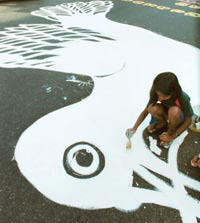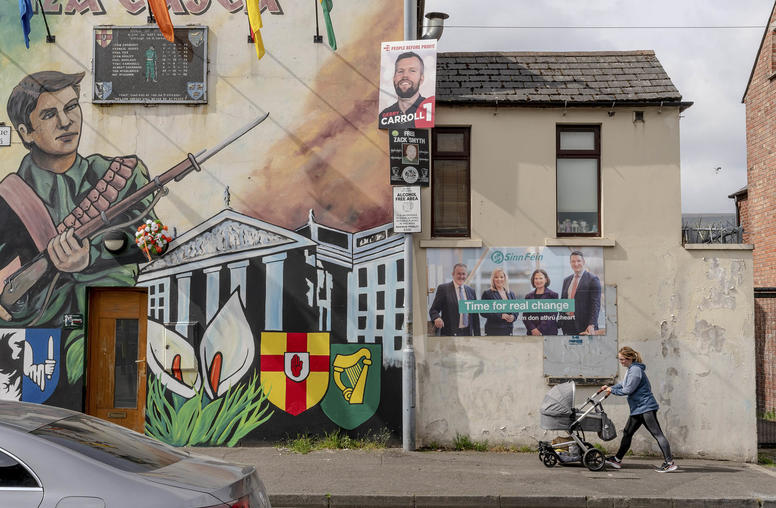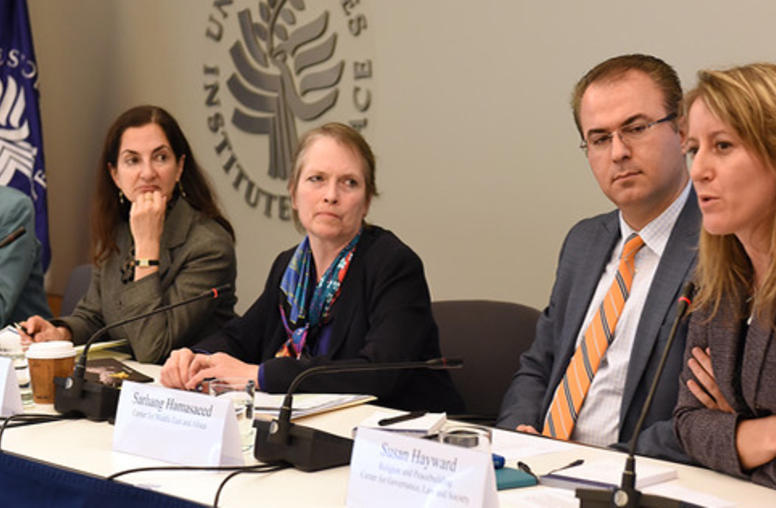Negotiating with Terrorists: Lessons from Northern Ireland, Sri Lanka,and Israel-Palestine
Image on right: A little girl draws a white pigeon, signifying a cry for peace, on a street in Colombo, Sri Lanka, July 15, 2001. A group of peace activists drew for peace at the site where bombs have previously exploded. (AP Photo/Gemunu Amarasinghe)
 As recent events in the Middle East amply demonstrate, peace processes are subject to derailment by many kinds of violence. In the The Effects of Violence on Peace Processes, a recent USIP Press book written by former Institute Senior Fellow John Darby, Darby delineates the impact of violence by states, political violence by zealots, and internal paramilitary violence. To expound upon some of the themes within the book, the Institute has gathered a panel of experts on peace processes to explore the lessons learned from peace negotiations and related political violence in Northern Ireland, Sri Lanka, and Israel-Palestine.
As recent events in the Middle East amply demonstrate, peace processes are subject to derailment by many kinds of violence. In the The Effects of Violence on Peace Processes, a recent USIP Press book written by former Institute Senior Fellow John Darby, Darby delineates the impact of violence by states, political violence by zealots, and internal paramilitary violence. To expound upon some of the themes within the book, the Institute has gathered a panel of experts on peace processes to explore the lessons learned from peace negotiations and related political violence in Northern Ireland, Sri Lanka, and Israel-Palestine.
Webcast live on May 29. the discussion was moderated by policital extremism specialist and director of the Instititute's Fellowship Program Dr. Joseph Klaits.
Speakers
- John Darby
Professor, Kroc Institute, University of Notre Dame and former Senior Fellow, U.S. Institute of Peace - John Wallach (Via Phone from New York)
President, Seeds of Peace; Executive Director, Elie Wiesel Foundation for Humanity; author The Enemy has a Face (USIP Press 2000); and former Senior Fellow, U.S. Institute of Peace - E. Valentine Daniel
Director, Southern Asian Institute, Columbia University
Moderator
- Joseph Klaits
Director, Jennings Randolph Fellowship Program, U.S. Institute of Peace



